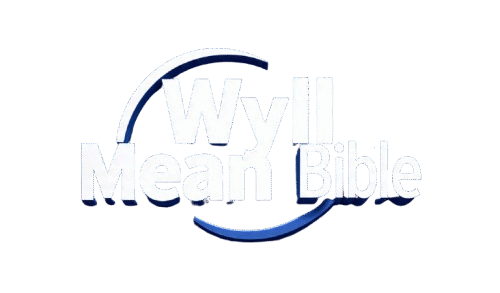“TYSM,” short for “Thank You So Much,” is one of the most common expressions of gratitude in online conversations today. In 2025, its popularity continues to grow, but people often look for alternatives that fit different tones whether polite, professional, or casual.
Choosing the right phrase can make communication more meaningful, showing respect in formal settings or adding warmth in personal chats. This guide explores the Best 35 TYSM alternatives to help you express appreciation in ways that feel natural, thoughtful, and perfectly suited to any context.
Formal Alternatives to “TYSM”
When writing in a formal setting, alternatives to “TYSM” should convey professionalism, clarity, and respect. Phrases like “Thank you very much,” “Many thanks,” or “I sincerely appreciate your assistance” are more suitable in business emails, academic communication, or official letters.
These options maintain a polished tone while still expressing genuine gratitude, ensuring your message is both courteous and professional.
Thank you very much.
A polished and professional way to express gratitude, suitable for formal settings like emails or presentations.
Example: Thank you very much for your prompt response to my request.
I sincerely appreciate it.
This phrase adds warmth and authenticity, making your thanks feel more personal and genuine.
Example: I sincerely appreciate your guidance on this project.
Many thanks.
A concise yet refined expression, often used in written correspondence to keep things polite and efficient.
Example: Many thanks for your support during the meeting today.
I am deeply grateful.
This conveys strong, heartfelt appreciation, often used when someone has gone above and beyond.
Example: I am deeply grateful for your help during such a challenging time.
Much obliged.
A slightly old-fashioned but respectful phrase, still effective in formal or professional contexts.
Example: I am much obliged for your assistance with the report.
Casual and Friendly Alternatives to “TYSM”

Casual and friendly alternatives to “TYSM” are perfect for everyday conversations where you want to keep things light, warm, and approachable. Instead of using formal phrases, you can go with expressions like “Thanks a ton,” “Big thanks,” or “Thanks a bunch” to add a fun and relaxed tone.
These phrases work well in texts, social media, or chats with friends and family, as they sound genuine without being too serious. They make your gratitude feel more personal and easygoing, fitting naturally into informal communication.
Thanks a ton!
A playful and enthusiastic way to show big appreciation, often used with close friends or family.
Example: Thanks a ton for helping me move this weekend!
Big thanks!
Simple and cheerful, this phrase works well in casual chats to show gratitude quickly.
Example: Big thanks for grabbing me a coffee this morning!
Thanks a bunch!
An easygoing and lighthearted expression that adds friendliness to your thanks.
Example: Thanks a bunch for covering my shift yesterday!
I really appreciate it!
Short, sincere, and heartfelt—great for both casual and semi-formal conversations.
Example: Really appreciate it! You saved me a lot of time.
Much appreciated!
Polite yet relaxed, this phrase is ideal for everyday communication in both work and personal settings.
Example: Much appreciated! I couldn’t have done it without you.
Texting Examples with “TYSM” Alternatives
- Thank you very much for sending me the details so quickly. That really helped.
- I sincerely appreciate your support today. It made things so much easier.
- Many thanks for picking up the groceries. You’re a lifesaver!
- I am deeply grateful for your kind words. They meant a lot to me.
- Much obliged for covering my shift yesterday. I owe you one.
- Thanks a ton for grabbing lunch with me. I had a great time!
- Big thanks for the ride home! I really appreciate it.
- Thanks a bunch for lending me your notes. They were super helpful.
- I really appreciate it! I couldn’t have done it without your help.
- Much appreciated! I’ll definitely return the favor soon.
Choosing the Best Alternative Based on Context

- Formality of the situation – Use polished phrases like “I sincerely appreciate it” in professional emails, but casual ones like “Thanks a ton!” with friends.
- Relationship with the recipient – Choose warmer, friendlier words for close friends or family, and more respectful options for colleagues or seniors.
- Clarity of expression – Pick phrases that your audience will easily understand; avoid outdated terms like “Much obliged” if they don’t suit the recipient.
- Depth of gratitude – Use stronger expressions such as “I am deeply grateful” when you want to emphasize significant appreciation.
- Cultural or generational tone – Some alternatives feel more modern or casual, so consider what sounds natural to the person you’re thanking.
- Medium of communication – In texts or chats, shorter options like “Thanks a bunch” work better, while in formal letters, longer phrases add professionalism.
- Personal communication style – Choose phrases that sound authentic to you so your gratitude feels genuine.
- Frequency of use – Rotate different alternatives to avoid sounding repetitive or insincere.
- Professional image – Stick with formal alternatives in workplace communication to maintain credibility.
- Impact of the favor – The bigger the help, the stronger your expression should be (e.g., “I am deeply grateful” instead of a simple “Thanks”).
Conclusion
In conclusion, while “TYSM” remains a quick and popular way to say thank you, exploring its alternatives in 2025 allows you to communicate more thoughtfully and effectively across different settings.
Whether you need a polished phrase for professional use, a heartfelt expression for meaningful moments, or a light and casual option for everyday chats, choosing the right words ensures your gratitude feels genuine and well-matched to the situation. By using these 35 polite, professional, and casual alternatives, you can strengthen connections, leave a positive impression, and express appreciation in ways that truly resonate.

Muhammad Shoaib is an expert writer in Bible meaning, quotes, bible, Prayers, and pick-up lines, known for crafting creative, catchy, and SEO-friendly content that connects and captivates audiences.






